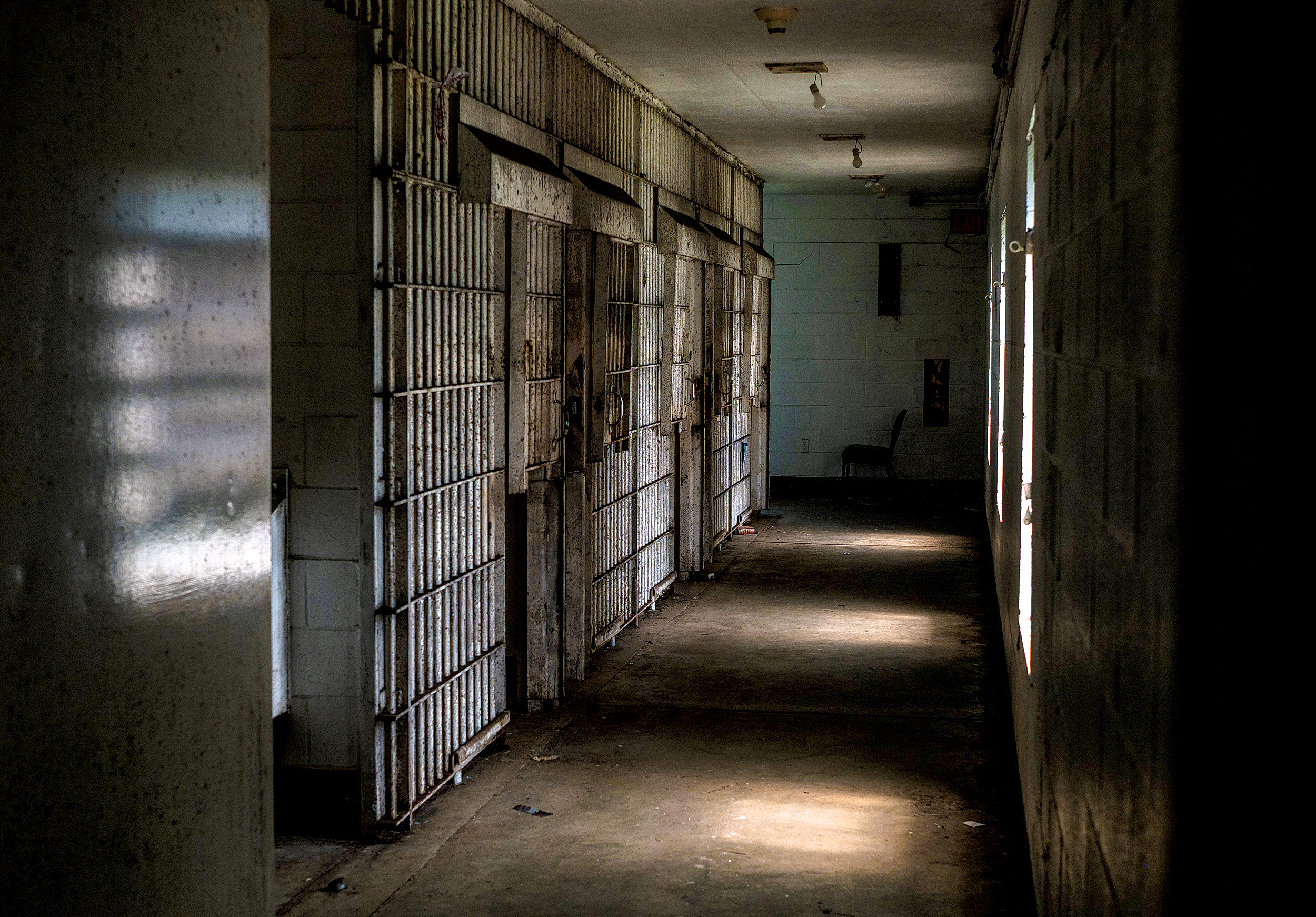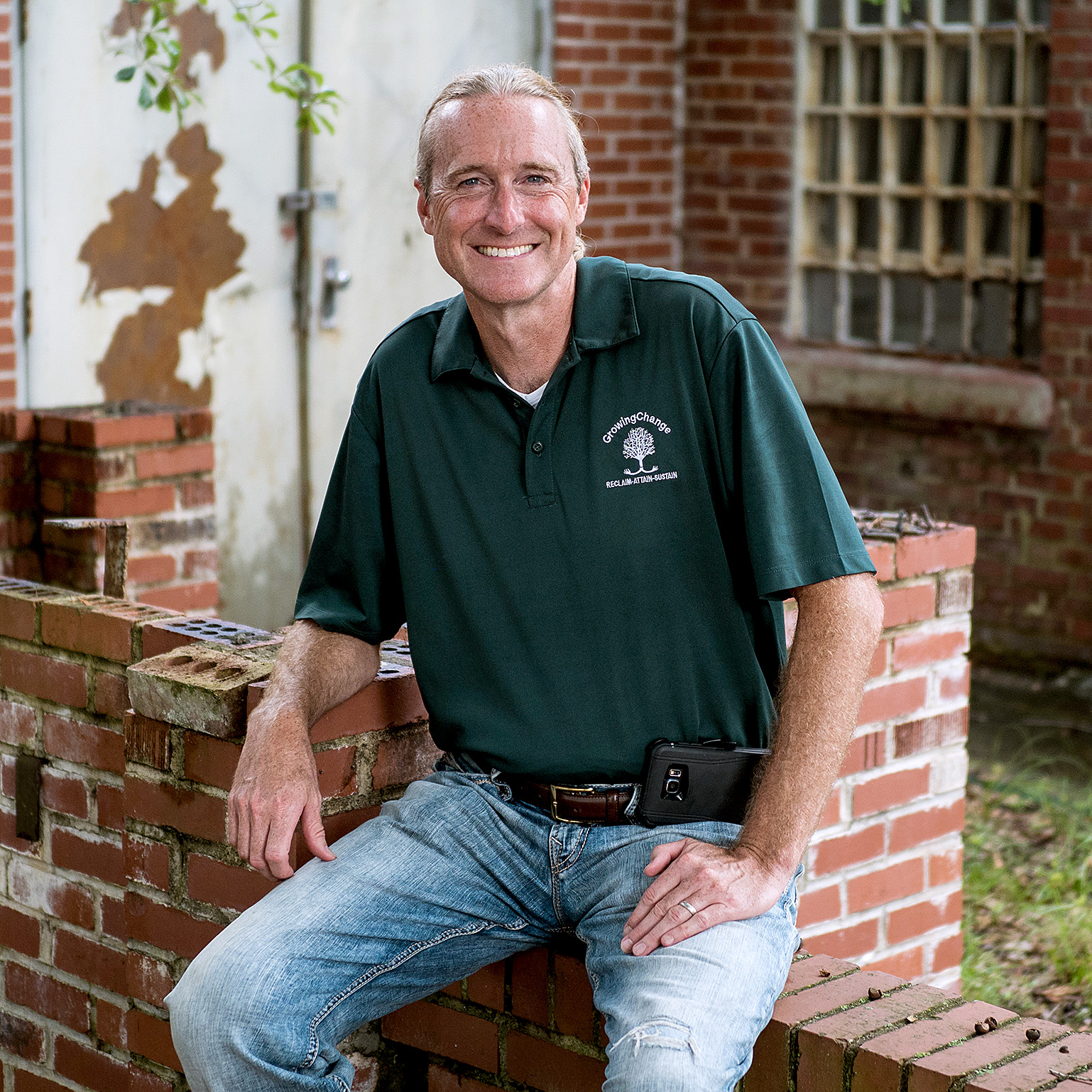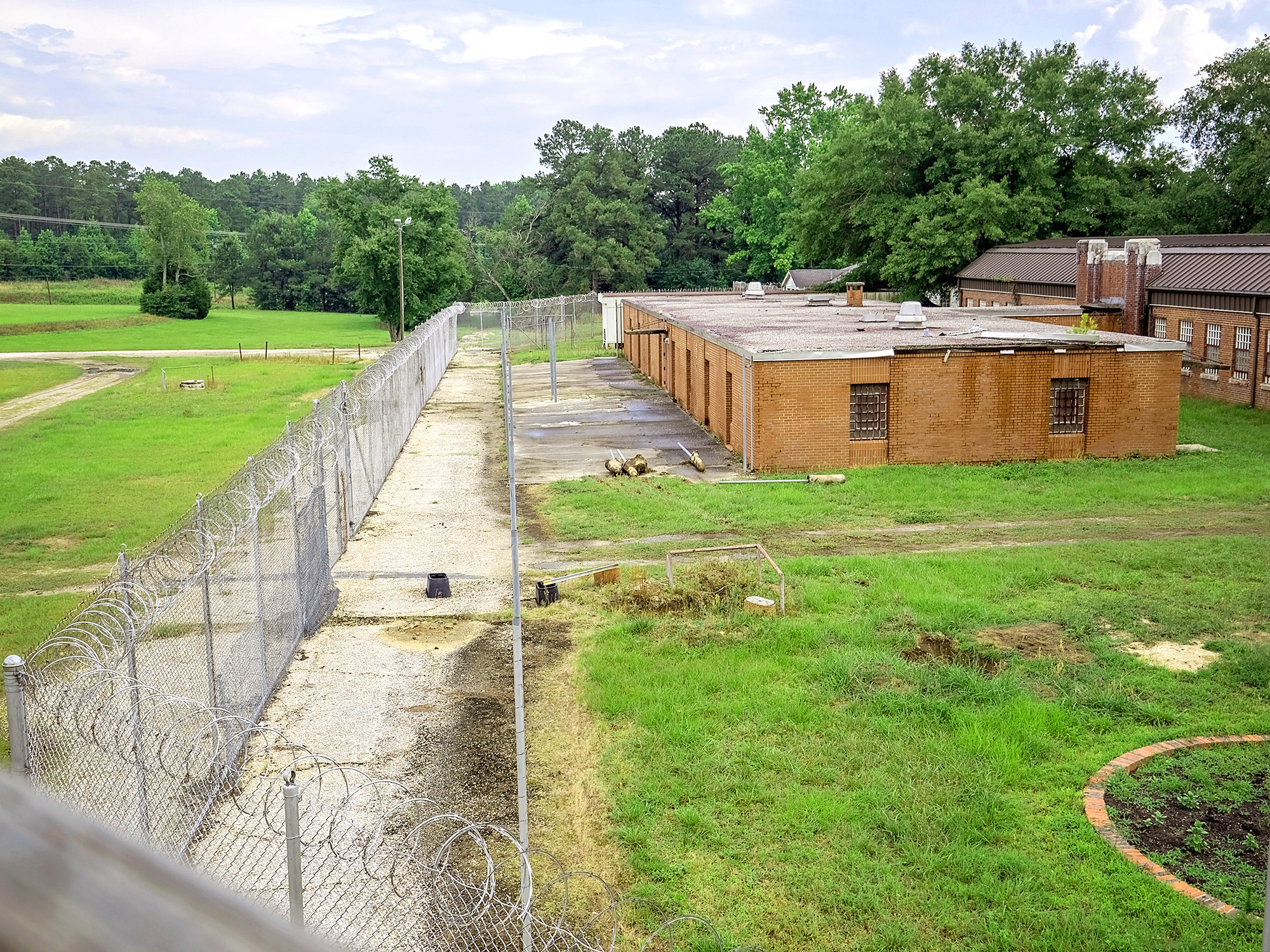A Fresh Start With Old Prisons
Posted on July 2, 2019
Noran Sanford ’91 has collaborated with agricultural experts on possible reuses for the Wagram Correctional Facility, which GrowingChange leases from the state. (Photo by Suzie Wolf)
For more than seven decades, the low-slung buildings and distinctive guard tower on 69 acres in Wagram comprised the Scotland Correctional Center. When the facility closed in 2001, the former workhouse might have been torn down. Noran Sanford ’91 had a different idea.
He envisioned turning it into a community farm and cultural center to keep the area’s disadvantaged youth from heading down the path to prison and give hope for a new life to those who already had been there. It was a radical idea, but Sanford believed the change was not only possible but necessary for the area where he grew up.

Noran Sanford ’91 wanted to address the high crime rates and intergenerational poverty in that area of south-central North Carolina. (Photo by Suzie Wolf)
The Laurinburg native had arrived in Chapel Hill a biology major and self-described “polite atheist”; he left a Christian committed to social welfare. Sanford returned home in 2000 after graduating from Virginia Commonwealth University with a master’s degree in social work.
“My vegetarian Southern California bride and I moved to a place with more hogs than people to provide homecare for my mother, who had Alzheimer’s,” he said. “As a Christian, the question I always ask is, ‘How can I best be able to serve?’ I began specifically working with older, more challenged youth.”
Sanford wanted to address the high crime rates and intergenerational poverty in that area of south-central North Carolina, about 30 miles west of Fayetteville. Working as a therapist for the region’s state Juvenile Crime Prevention Councils, he tried to reach boys who’d been convicted of crimes and were estranged from their homes or schools. He came to believe the juvenile justice system failed, in part, because it did not provide opportunities for young people to practice better behavior, such as when a young man with whom he’d worked died from gang violence.
“He was bright, great with people and an incredible athlete,” Sanford said. “The judicial system failed him, and I failed this young man and his family.” Sanford was determined to never stand at another graveside asking if he could have done more.
“When you talked to these young men, they would tell you they expected to be locked up by their 20s. When I said we’re going to help them flip their prison, they thought that was an absolutely corny idea.”
— Noran Sanford ’91
The idea for GrowingChange took root when Sanford, traveling through Scotland, Hoke and Robeson counties, noticed there were six closed prisons within a 50-mile radius of the Wagram prison site.
“When you talked to these young men, they would tell you they expected to be locked up by their 20s,” Sanford said. “When I said we’re going to help them flip their prison, they thought that was an absolutely corny idea.”
In 2011, Sanford began a five-year clinical pilot program to provide cognitive behavioral therapy for young men seemingly destined for the adult prison system. It included a service-learning component to begin transforming the former labor camp into a sustainable farm and educational center. It grew and gave away food to needy families of Scotland County — facing the highest food insecurity rate in the state, with more than a quarter of residents struggling to get enough nutritious food, according to federal census data. In the program’s first summer using community garden plots, it distributed more cucumbers, peppers, squash, cabbage and other produce than the youth participants’ combined weight — even when excluding the watermelons.
During the pilot project, more than 90 percent of GrowingChange participants were kept out of the adult prison system. In 2015, The Open Society Foundation named Sanford a Soros Justice Fellow, and GrowingChange became an independent nonprofit with the goal of also providing employment and educational services for returning veterans and recreational opportunities for youth.

Beyond growing produce, GrowingChange envisions the Wagram site providing a commercial-grade community kitchen where residents can learn to prepare and preserve the fresh food. (Photo by Suzie Wolf)
Since breaking ground on the Wagram site renovations in early 2017, Sanford has collaborated with agricultural experts on possible ways to reuse the facility, which GrowingChange leases from the state. He and his team are moving ahead with a number of plans for the site, such as increasing a sheep flock, transforming the prison perimeter into a pasture and expanding rotational grazing. They are training beekeepers to tend hives and are harvesting cabbages to make and preserve their own chowchow relish. This summer, the youth team will release the first installment of its How to Flip Your Prison YouTube documentary series: “How to Create a Composting Unit.”
GrowingChange has two full-time staffers and seven youth who work part time. Youth Director Terence Smith, 22, went from intensive probation to leading the effort for change. Smith got to know Sanford as a seventh grader while on juvenile probation, and Sanford visited him in the wilderness camp where Smith had been assigned. Smith uses his own experience to reach out to others who come through GrowingChange.
“I tell them, ‘You’re not going to end up where you think you’ll end up doing what you’re doing,’ ” he said. “I feel like I’m making a difference sometimes, but I wish I could do more and reach more kids.”
Beyond growing produce, GrowingChange envisions the Wagram site providing a commercial-grade community kitchen where residents can learn to prepare and preserve the fresh food, as well a classroom for Richmond Community College students training in food service and culinary arts and a fieldwork site for UNC-Pembroke’s sustainable agriculture program. It will provide summer enrichment programs and day camps, with guard towers converted into climbing walls.
GrowingChange is getting notice and awards; among them, Sanford was named the 2017 Rural Leader of the Year by the N.C. Rural Center for making significant improvements in his community. The organization was chosen as an international fellow for Young in Prison, a nongovernmental organization based in the Netherlands that promotes unique approaches to addressing youth in trouble with the law. Last fall, Sanford received the William C. Friday Award from N.C. State for “dedication to leadership, scholarship, service and character.”
Sanford is developing the “prison flip toolkit” as a national model for the other 22 closed prisons in North Carolina and more than 300 across the country. “We’re creating some best-practice standards for how these sites can be reclaimed for the greater community,” he said.
— Melba Newsome
Thanks for reading the Carolina Alumni Review
Carolina Alumni members, sign in to continue reading.
Not yet a member? Become one today.
